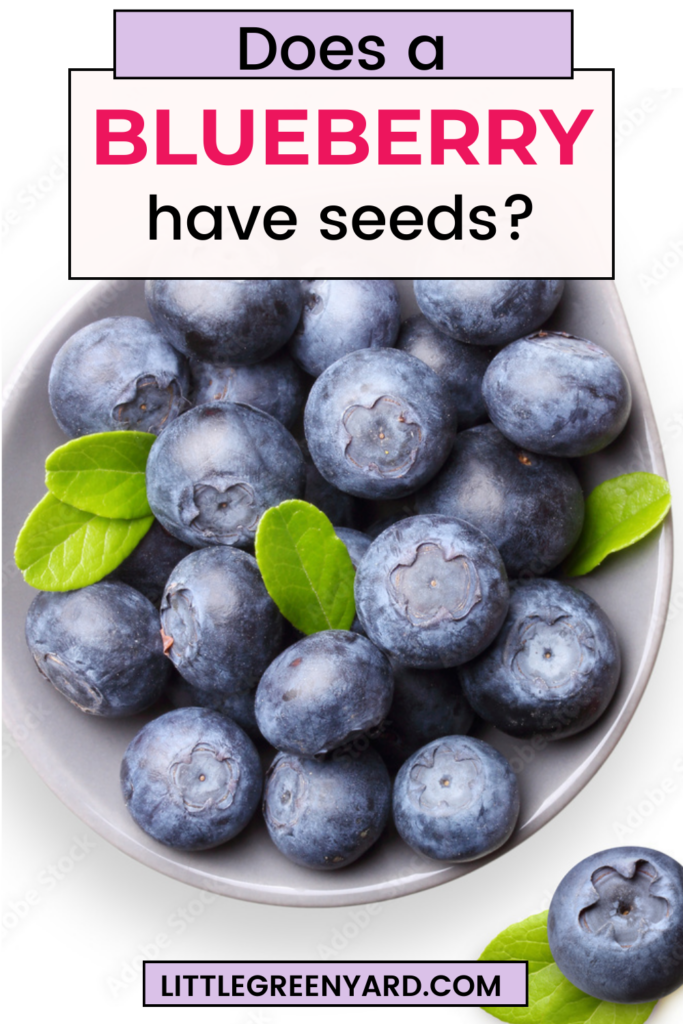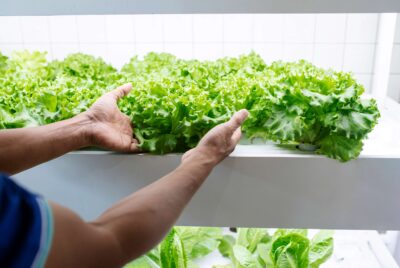Does a blueberry has seeds?
As an experienced gardener, I often come across misconceptions and myths surrounding plants. One common misconception is that blueberries don’t have seeds. In this article, I would like to debunk this myth and provide helpful suggestions and reasons to support my claims.
Introduction
Blueberries are delicious and nutritious fruits that are enjoyed by many. They are packed with antioxidants, vitamins, and minerals, making them a popular choice for healthy eating. However, there seems to be confusion regarding whether blueberries have seeds or not. Having worked with various plants and fruits for years, including blueberries, I can confidently state that blueberries do have seeds. These tiny seeds are present within the fruit, but they are often overlooked due to their small size.
So does a blueberry has seeds?
The belief that blueberries are seedless might stem from the fact that their seeds are not as noticeable as those of other fruits, such as strawberries or raspberries. Blueberry seeds are small and inconspicuous, nestled within the flesh of the fruit. However, they are undoubtedly present. To better understand blueberries and their seeds, it’s essential to explore different blueberry varieties. There are several cultivars of blueberries, each with its unique characteristics and seed arrangements.
Anatomy of a Blueberry
Blueberries are botanical fruits that develop from the ovaries of blueberry flowers after pollination. The fruit consists of a protective skin called the exocarp, juicy flesh known as the mesocarp, and seeds contained within the endocarp. While the seeds are tiny and often go unnoticed when consuming blueberries, they are an integral part of the fruit’s reproductive cycle.
Seedless Blueberry Varieties
Although blueberries generally have seeds, there are specific varieties bred to have fewer seeds, making them appear almost seedless. These varieties are called lowbush blueberries and have been selectively cultivated to enhance desirable traits, such as sweetness and ease of eating. However, even in these seed-reduced varieties, there are still some tiny seeds present.
Why People Think Blueberries Are Seedless
The misconception that blueberries are seedless may arise from the fact that the seeds are not as prominent or bothersome compared to those of other fruits. Additionally, when consuming fresh blueberries, the seeds can easily be swallowed without much notice due to their small size and soft texture.
Pollination and Seeds
Blueberries, like many other fruits, require pollination to produce seeds. Bees and other pollinators play a vital role in transferring pollen from the male parts of the blueberry flower to the female parts, resulting in fertilization and seed formation. Without proper pollination, blueberries may not develop seeds or produce less desirable fruits.
How Blueberries Reproduce
To propagate blueberry plants, seeds are used. These seeds can be collected from mature blueberries and planted to grow new plants. While commercial blueberry cultivation often relies on vegetative propagation methods, such as stem cuttings or tissue culture, the presence of seeds in blueberries allows for natural reproduction in the wild.
Blueberry Cultivation Tips
If you’re interested in growing blueberries in your own garden, here are a few tips to get you started:
- Choose the right variety: Select a blueberry variety suited to your climate and growing conditions.
- Provide proper soil conditions: Blueberries prefer acidic soil with a pH between 4.5 and 5.5. Amend your soil accordingly.
- Sunlight and water: Blueberries thrive in full sun, so choose a sunny location for planting. Ensure they receive adequate water, especially during dry periods.
- Pruning and maintenance: Prune your blueberry bushes to promote healthy growth and remove dead or damaged branches.
- Protect from pests: Take measures to protect your blueberry plants from common pests, such as birds or insects.
Following these guidelines will help you cultivate healthy blueberry plants that will reward you with delicious fruits containing those tiny, but significant, seeds.
Conclusion
In conclusion, blueberries do have seeds, contrary to the common misconception that they are seedless. Although the seeds are small and often go unnoticed, they play a vital role in the reproduction and cultivation of blueberry plants. Understanding the anatomy of blueberries and debunking this myth can enhance our appreciation for these delightful fruits.
FAQ
- Q: Are blueberry seeds safe to eat?
A: Yes, blueberry seeds are safe to eat. They are tiny and usually go unnoticed when consuming blueberries. - Q: Can I grow blueberries from the seeds?
A: Yes, you can grow blueberries from seeds. However, keep in mind that it may take longer for seed-grown plants to reach maturity and produce fruits compared to vegetative propagation methods. - Q: Are there any seedless blueberry varieties available?
A: While there are blueberry varieties bred to have fewer seeds, complete seedlessness is rare. Most blueberries, even in seed-reduced varieties, still contain tiny seeds. - Q: Do all blueberry plants require cross-pollination?
A: No, not all blueberry plants require cross-pollination. Some varieties are self-pollinating, while others benefit from cross-pollination to ensure better fruit set and seed production. - Q: How can I protect my blueberry plants from birds?
A: You can protect your blueberry plants from birds by using netting or bird scare devices. These methods help prevent birds from accessing the fruits while allowing pollinators to do their job.





